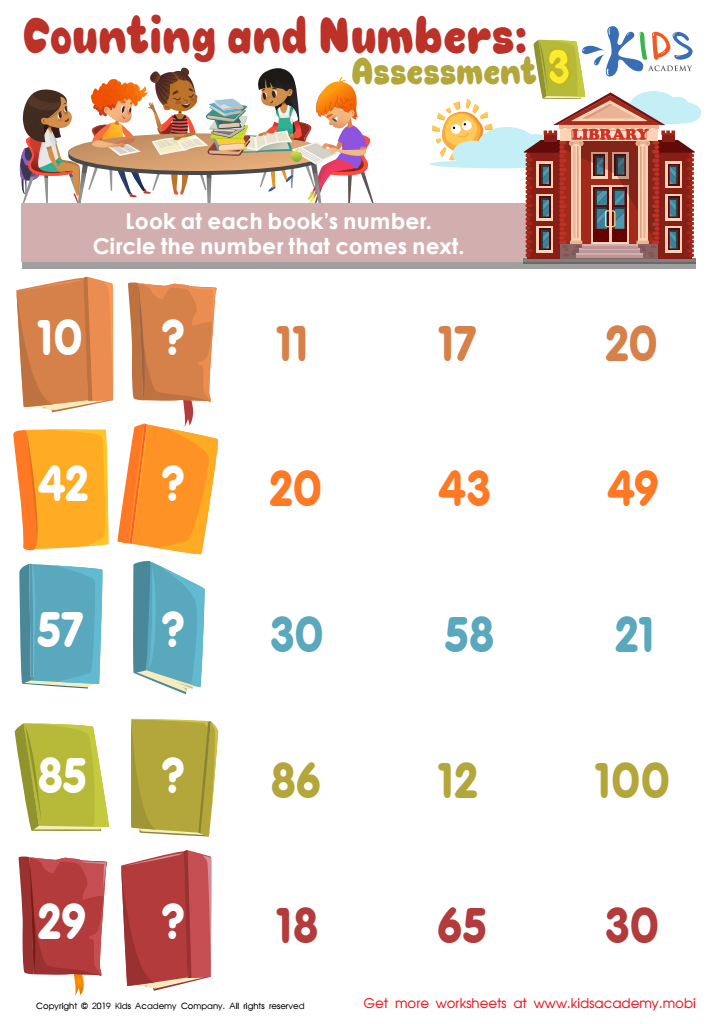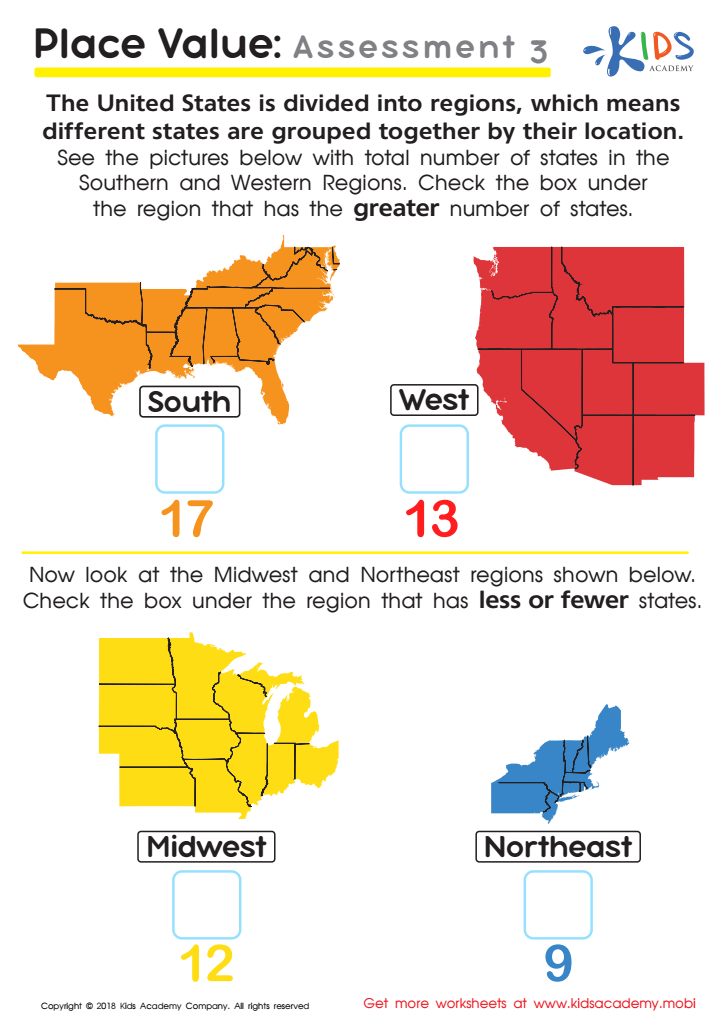Normal Numbers worksheets activities for 6-Year-Olds
2 filtered results
-
From - To


Counting and Numbers: Assessment Worksheet


Place Value: Assessment 3 Worksheet
Normal Numbers worksheets activities play a crucial role in the mathematical development of students across various age groups. These activities are designed to reinforce basic numerical concepts, enhance numerical fluency, and develop critical thinking skills that are essential for tackling more complex mathematical problems in the future. Engaging in Normal Numbers worksheets empowers students to master the fundamental building blocks of mathematics, such as addition, subtraction, multiplication, and division, alongside understanding numerical relationships and patterns.
One of the key reasons why Normal Numbers worksheets activities are incredibly useful is that they offer a structured approach to learning numbers. This structure helps students to systematically build their knowledge and confidence in handling numbers, making the learning process both efficient and effective. By gradually increasing the level of difficulty, these worksheets ensure that students are constantly challenged, which is vital for fostering a growth mindset and a love for learning mathematics.
Moreover, Normal Numbers worksheets activities are designed to cater to a wide range of learning styles. Whether a student prefers a more visual approach, learning through practice, or solving problems in a game-like format, there is a worksheet activity tailored to meet their needs. This inclusivity enhances engagement and ensures that every student has the opportunity to thrive in their mathematical journey.
Additionally, these worksheets provide immediate feedback to students, allowing them to identify and learn from their mistakes. This aspect of self-assessment encourages a reflective learning process, where students can understand their areas of strength and where they may need additional practice. It also fosters a sense of independence, as students learn to take charge of their educational progress.
In conclusion, Normal Numbers worksheets activities are an indispensable tool in the realm of mathematics education. They not only lay a solid foundation for numerical understanding but also cultivate problem-solving skills, encourage independent learning, and accommodate diverse learning preferences. Engaging in these activities equips students with the confidence and competence to navigate the world of numbers with ease and enthusiasm.
 Assign to My Students
Assign to My Students



















